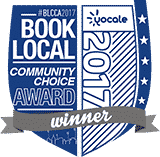 Many people practise acupuncture in Ontario but how do you know that they are properly qualified? When it’s you or your family’s health on the line, asking the right questions before you get treated by your Ontario Acupuncturist will keep you safe, make for more effective treatments and will save you money!
Many people practise acupuncture in Ontario but how do you know that they are properly qualified? When it’s you or your family’s health on the line, asking the right questions before you get treated by your Ontario Acupuncturist will keep you safe, make for more effective treatments and will save you money!
Important Note! I have added one more question to this article as acupuncture is officially a regulated healthcare profession as of April 1st 2013. The first question you should be asking is “Are you registered with the College?”. Find out more about finding a registered acupuncturist in my new article here.
Question #1
Where did you do your training? How long did you train for?
Most people don’t even ask this question when seeking an acupuncturist but I think it is one of the most important. By finding out where they did their training, you can go directly to their institutions website which will (should) clearly outline how many hours the individual trained for. You can also discover how long their institution has been around (if indeed it still is!) and the quality of instructors that they have.
Any qualified acupuncturist will be happy to discuss where they did their training not to mention how many hours they have completed in the classroom and how many clinical hours they did before they were allowed to graduate. The institution that I went to is a 5 year full-time program with over 4000 hours of training. www.tstcm.com
If they are the “real deal”, they would have completed at minimum, 2 years of full-time training for an acupuncture diploma and at least 4 years for those who practise the full scope of Traditional Chinese Medicine (i.e. Chinese herbal medicine, diet therapy, Chinese Tuina massage, tai chi, qi gong etc.). Don’t be surprised to hear of other health practitioners who perform acupuncture with only a few weekends of training. These individuals have a very limited scope of what they can treat and should be avoided for those with more complicated cases (anything other than pain management).
Question #2
Have you passed the Clean Needle Technique Exam (CNT)? Do you use disposable needles only?
Qualified TCM institutions in Canada require its students to pass what is called the Clean Needle Technique exam. In 1984, the National Commission for the Certification of Acupuncture and Oriental Medicine (NCCAOM) addressed the issue of clean needle technique and went on to develop the guidelines and recommendations for the safe and clean practice of acupuncture. Practitioners who have completed this stringent practical and written exam will use sterile, one-time use disposable needles only and implement other important techniques known to ensure a safe and effective acupuncture experience. After completion of the exam, practitioners are given an official certificate so simply ask your prospective acupuncturist to show you the certificate (which should be displayed clearly in their office).
Check out this website for more information on CNT from the Council of Colleges for Acupuncture and Oriental Medicine in the U.S. http://www.ccaom.org/cntprogram.asp
Question #3
Have you treated my condition before?
Just because they do acupuncture does not mean that they have experience dealing with your condition. Just like medical doctors, people who practise Traditional Chinese Medicine (TCM) will quite often “specialize” in certain areas or medical conditions and may not see certain conditions come into their clinic enough to feel confident in treating them.
Find out how often they see your condition and if they seem like they don’t have much experience, ask them if they know someone who does. An ethical acupuncturist will let you know when they are not confident with your issue and will often have a “referral network” of other practitioners which should have more experience in your area.
Question #4
What TCM association do they belong to?
This question is important for a couple of reasons. First, if they are part of an association, this means that they have met the educational standards of this association and is another way of ensuring that your acupuncturist is well trained and qualified. Obviously, it should be a Traditional Chinese Medicine association and not an association for another health profession. (would you trust my skills if I had a chiropractic practise from an acupuncture association?). The second reason is that to have your acupuncture covered by your insurance company, they will often require that your acupuncturist have a registered number from one of the accepted associations. Be sure to ask your insurance company which associations they accept for acupuncture treatments before committing to treatment.
Question #5
Can you easily communicate with your acupuncturist?
Well, this is more of a question for you to ask yourself. Ensuring that your acupuncturist fully understands your issue is paramount and will play a large part of whether you receive proper treatment or not. It is unfortunate that some practitioners are extremely qualified technically but due to language barriers or poor communication skills, things get lost in translation and you might not get the outcome you expect with your acupuncture experience. Choose someone who can listen well, who can clearly explain how acupuncture works and someone who can clearly explain what it is they can do for your health condition.
Question #6
Do they have a website?
Let me clarify, just because someone has a website does not make them a qualified acupuncturist. However, having one lets people know that they are at least serious about this venture and that this is not a fly-by-night operation. I can’t tell you how often I notice a new acupuncturist’s website only to see it disappear in a few months time.
The things which a website contains (or doesn’t) can tell you a lot about the individual. For example, be cautious if you discover the following issues on a prospective acupuncturists’ website.
- No mention of where they did their training (if they do mention it, check out the institutions website to see how many hours they trained for)
- A missing bio of the practitioner(s) – I personally like to see a bio pic as well
- Are they an acupuncturist or are they another health professional (chiropractor, physiotherapist, massage therapist) who has only done a few weeks of training. This is important if you are seeking an acupuncturist for more than just pain management.
- If they are selling ad-space on their site. I find that if people are doing this, they are more interested in attracting you to their website and are less focused on patient centred care.
- They have a huge list of conditions that they treat on the first page. This is simply a way to increase their keyword density (not to get too technical) and is an attempt to attract more visitors to their site.
Knowledge is Power
It may seem like you have to be a detective when you are finding an acupuncturist but if you find the answers to the above important questions, you will end up working with someone who is confident in their skills and who will ultimately get you to your health goals safely and effectively. Happy hunting!
Click on the Book Now button below to get started with Drew today!



Hello, I was wondering if Kinesiologists or PTA’s are allowed to take out accupuncture needles that are already inserted into the patients body?
Great Question Jay.
Sorry for the delayed response. What you are referring to is “delegation”. A few things need to be looked at. Who put the needles in in the first place? Are they a registered acupuncturist or not? In Ontario, acupuncture is a regulated profession and you need to be part of the college to be an acupuncturist. However, some other regulated healthcare professions have acupuncture under their scope of practice and are able to use acupuncture as part of their treatments (physiotherapists, chiropractors etc.). To safely determine if someone is allowed to remove needles in the situation you described above depends on the two participating individuals own college’s rules and regulations. The safe bet is to contact your college to see if delegation is allowed for this procedure. If you are from Ontario, refer to the CTCMPAO Jurisprudence handbook, page 31 for more information.
I hope this helps!
Drew